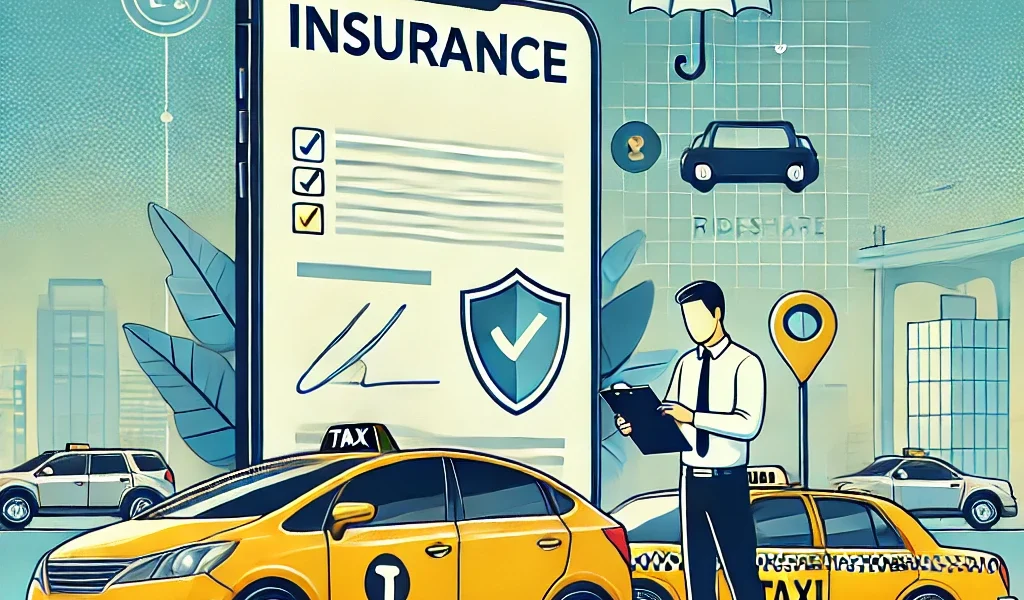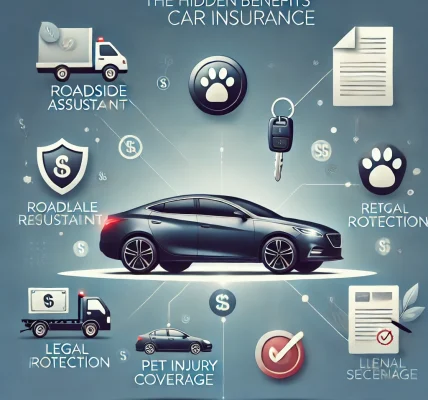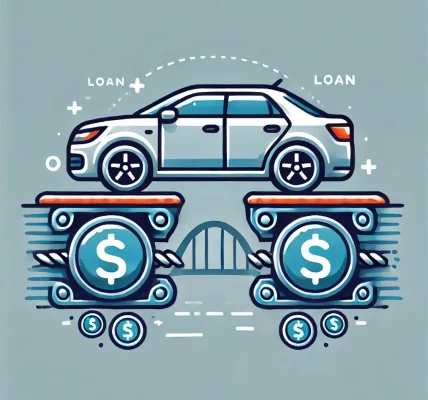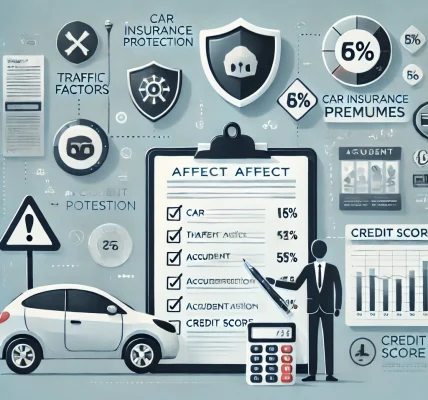Introduction
With the rise of ridesharing services like Uber and Lyft, and the continued presence of traditional taxis, having the right car insurance is more critical than ever. Many drivers mistakenly believe that their personal auto insurance will cover them while transporting passengers for a fee. However, this assumption can lead to financial and legal trouble.
Understanding why car insurance is essential for rideshare and taxi drivers can help protect you, your vehicle, and your passengers from unforeseen risks. This guide will break down the importance of proper coverage, the types of insurance available, and how to ensure you’re fully protected on the road.
Why Regular Car Insurance Isn’t Enough
Personal vs. Commercial Use
- Standard personal auto insurance excludes coverage for commercial activities like transporting passengers for money.
- If you’re involved in an accident while ridesharing or driving a taxi, your insurer may deny your claim if you only have a personal policy.
Potential Financial Risks
- Without the right coverage, you may be responsible for repair costs, medical expenses, and even lawsuits.
- Many rideshare companies provide limited coverage, leaving gaps that drivers must fill with additional insurance.
Legal Consequences
- Many states require rideshare drivers to have special insurance policies.
- Driving without proper coverage could lead to fines, license suspension, or legal penalties.
Types of Car Insurance for Rideshare and Taxi Drivers
1. Rideshare Insurance
- Designed specifically for drivers working with companies like Uber and Lyft.
- Covers gaps between personal auto insurance and rideshare company coverage.
- Often includes liability, collision, and comprehensive coverage.
2. Commercial Auto Insurance
- Required for taxi drivers and those who own commercial transportation businesses.
- Provides higher liability limits than personal or rideshare insurance.
- Covers medical expenses, vehicle damage, and legal fees in case of an accident.
3. Employer-Provided Insurance (For Taxi Drivers)
- Many taxi companies provide fleet insurance for their drivers.
- Covers accidents, vehicle repairs, and passenger injuries.
- May not include personal injury protection (PIP), requiring drivers to get additional coverage.
How Rideshare Company Insurance Works
Rideshare companies like Uber and Lyft offer limited insurance coverage that varies based on your driving status:
Period 1: App is on, but no ride accepted
- Liability coverage only (usually low limits).
- No collision or comprehensive coverage.
- Rideshare insurance fills this gap.
Period 2: Ride accepted, but passenger not yet picked up
- Company-provided coverage increases significantly.
- Collision and comprehensive apply only if driver has personal coverage.
Period 3: Passenger in the car
- Full commercial coverage from the rideshare company applies.
- Includes liability, collision, and comprehensive insurance.
🚨 Warning: After dropping off a passenger, you return to Period 1, where coverage is very limited.
How to Choose the Right Insurance Policy
1. Assess Your Driving Situation
- Do you drive full-time or part-time?
- Are you using a personal car or a company vehicle?
- Do you drive for a rideshare app, taxi service, or both?
2. Compare Insurance Options
- Ask insurers about rideshare endorsements for personal policies.
- Compare commercial auto insurance rates and coverage.
- Ensure the policy covers passenger injuries, vehicle repairs, and liability.
3. Check Local Regulations
- Some states require specific minimum coverage levels for rideshare and taxi drivers.
- Research state insurance laws to avoid fines or policy gaps.
4. Consider Additional Coverage
- Uninsured/Underinsured Motorist Coverage: Protects against drivers without insurance.
- Gap Insurance: Covers the difference if your car loan exceeds your vehicle’s value.
- Rental Reimbursement: Provides a rental car if yours is damaged in an accident.
Cost of Insurance for Rideshare and Taxi Drivers
Factors Affecting Insurance Rates
🚗 Driving History – More accidents or violations = higher premiums. 🚗 Location – Cities with high accident rates may have higher costs. 🚗 Vehicle Type – Newer or luxury cars cost more to insure. 🚗 Coverage Level – More coverage means higher premiums.
How to Save Money on Insurance
💡 Bundle policies (home + auto) for discounts. 💡 Maintain a clean driving record to qualify for lower rates. 💡 Increase your deductible (if financially feasible) to lower premiums. 💡 Take defensive driving courses for insurance discounts.
Final Thoughts: Protect Yourself and Your Business
If you drive for Uber, Lyft, or as a taxi driver, relying on personal auto insurance alone is risky. Ensuring you have the right coverage will protect your finances, passengers, and legal standing.
✔️ Rideshare insurance bridges coverage gaps for app-based drivers. ✔️ Commercial auto insurance is essential for full-time taxi drivers. ✔️ Compare policies and follow state laws to stay compliant. ✔️ Investing in the right insurance gives peace of mind and long-term security.
🚖 Stay covered, stay safe, and drive with confidence! 🚗💨




